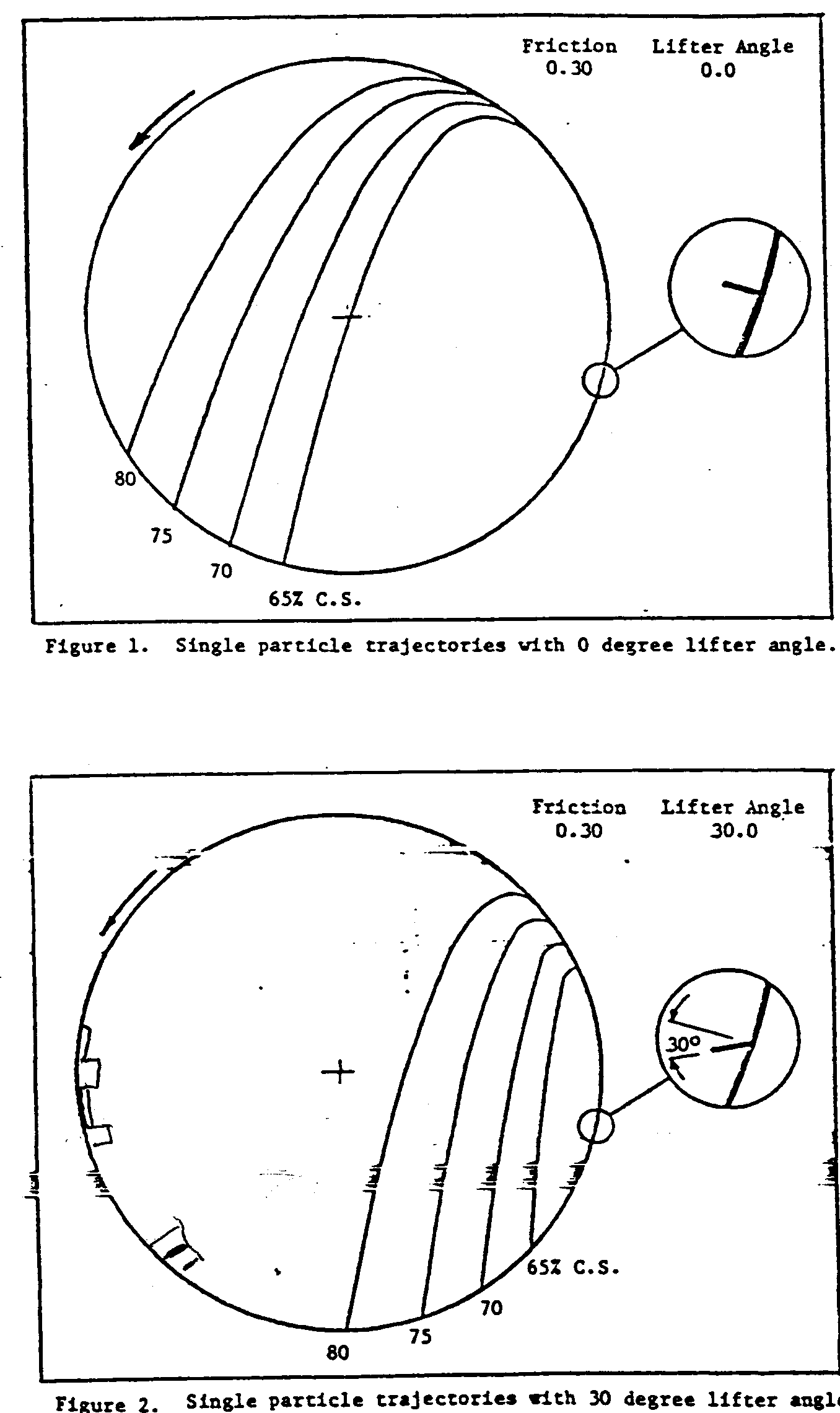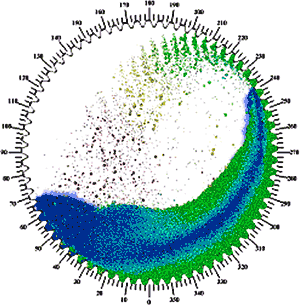Drawing from Dominion Engineering
Works Limited
 Energy Concepts
Energy Concepts
1. Liner design and rotational speed determine manner in which
energy is transferred to ore breakage.
2. Input energy is imparted to the grind load by motor causing
rotation.
3. The power draw will vary with different liner designs and throughout
the wear life and depends on the wear pattern.
4. The most efficient grinding occurs at maximum power draft - operating
the mill at its design
capacity.
5. Higher energy collisions - caused by greater trajectories are less efficient
than those is the lower energy range. Higher energy collisions cause liner
damming and increased grind ball consumption.
Mechanics
Ball and ore particles follow Newton's laws of motion.
1. A mill speed approaching 80% of critical can optimize grinding action
and reduce wear. A charge with a increased trajectory does less work and
more damage as grinding balls are flung against the opposite
side of the shell instead of falling down on top of the central mass.
2. Mill critical speed is reached when a particle centrifuges - hangs on
to the shell and does not fall.
3. Particle trajectory is independent of mill diameter and therefore optimum
% of critical speed is
independent of diameter
4. A desirable trajectory will not be maintained throughout the liner wear
cycle unless the the wear profile is predictable and can be compensated
by varying the rotational speed.
5. The trajectory of each particle is based on its geometry, dimensions,
and material properties of grinding balls, steel liners and ore type.
The KEY concept is liner design has most effect on charge
motion - particle trajectory - and
optimizing this charge motion can increase mill efficiency - reducing wasteful,
power
consuming
collisions.
DEM software simulated SAG charge
motion, Conveyor-Dynamics.com

Optimizing liner design requires a valid charge motion model.
The new DEM software, an image shown here,
describes the performance of independent mill styles
and liners configurations.
 Energy Concepts
Energy Concepts